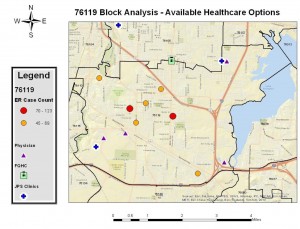The Power of Data Integration for Population Health
Healthcare providers, public health agencies and state health programs all collect data. For example, county hospitals have data about a patient’s diagnosis and procedure. Public health agencies have many programs such as WIC, immunizations, mental health and HIV in which they collect and maintain data. Meanwhile, social service agencies collect information on families while enrolling them in Medicaid. Many programs serve the same clients with considerable overlays in data collected and databases maintained. There is no communication between these different entities.
Today’s technology allows for sophisticated linkage of databases with well-designed warehouses and information systems. There is growing recognition of the power of such public health information when making decisions. Hospital Administrative Discharge Data, similar to the Dallas-Fort Worth Hospital Council (DFWHC) Foundation’s data warehouses, can be cultivated and linked to different databases offering powerful insights into the health of the DFW population. Below is an example of research regarding available healthcare options for zip codes with high emergency room use.

We found that 11 percent of the population living in the hot blocks — the red circles on the map — have pre-existing conditions of diabetes. You can also see the major highway separating these patients from physician offices or clinics that could help treat their diabetes. Recently, the National Institutes of Health did research and discovered the average cost of an emergency room (ER) visit is $1233.00. If we focus on keeping the diabetic patients within these hot blocks healthy and out of the ER, we could save more than $2 million dollars.
The DFWHC Foundation will continue to provide innovation in data integration. We hope to continue to work with our partners as we focus on improving community health. For information, please contact me at tmendoza@dfwhcfoundation.org.
